
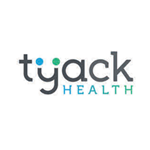

Acupuncture is a form of alternative medicine, where thin needles are inserted at acupuncture points across the body. Traditional Acupuncturists believe that by inserting the needles at precise points, they gently stimulate and correct imbalances in the flow of energy (called Qi, pronounced “chee”) in the body.
Acupuncture can be used to treat a range of illnesses and dysfunctions of the body – both acute (recent onset) and chronic (ongoing) in nature. It stimulates the body’s defensive and self-healing systems, as well as promoting and maintaining good health.
Originating in China, thousands of years ago, acupuncture is part of a complete system of natural health care, called Traditional Chinese Medicine (TCM). According to ancient Chinese medical writings, there are pathways (or energy meridians) around and through the body, and acupuncture releases any blockages in those pathways, so that Qi flows freely.
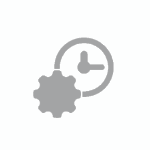
Acupuncture works on the principle of improving the overall well-being of the patient, by stimulating the body’s self-healing power. When Qi flows freely, the body functions well, but when Qi becomes blocked, organ function is impaired and symptoms of illness appear. It is believed that acupuncture stimulates the free flow of Qi, thus restoring the harmonious energetic balance of the body.

Science continues to validate the effectiveness of acupuncture for specific health problems and through experience, we’ve found that optimal healing results are achieved by:

Growing up, Sing Kao was surrounded by a family who believed in helping people overcome disease. His work, with Traditional Chinese Medicine (TCM), carries on that legacy – of being devoted to a natural, holistic approach to achieving personal wellness.
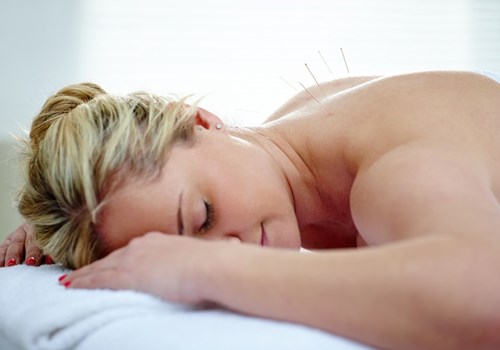
Musculoskeletal
Lower back ache, knee pain, bursitis, tendonitis, tennis elbow, frozen shoulder, muscle tension, arthritis, sciatic, joint pain, sporting injuries.
Digestive
Heartburn, diarrhoea, constipation, abdominal bloating or pain, haemorrhoids, ulcers.
Respiratory
Common cold, asthma, sinusitis, bronchitis, chronic cough, low immune system.
Women
Menstrual cramps, irregularity, abnormal bleeding, menopausal symptoms.
Cardiovascular
High or low blood pressure, fluid retention, chest pain, poor circulation, muscle cramps.
Stress, insomnia, withdrawal from medication or drugs.
Headaches, migraines, facial and intercostal neuralgia, some paralysis conditions, post stroke recovery.
Fatigue, chronic pain, post-op recovery.
Note: If your condition is not listed above, consult the practitioner for further information.
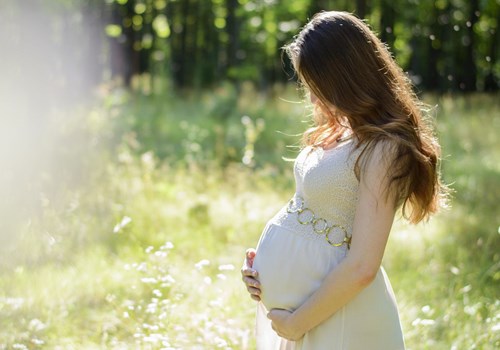
The aim of traditional Chinese medicine for infertility sufferers is to "normalise," and "harmonise," the body, bring into balance all parts and functions of the body that are associated with male and female infertility.
Traditional Chinese Medicine manipulates the flow of Qi using Acupuncture, and the use of Chinese herbs to nourish, support and strengthen the body, vital fluids (including blood) and internal organs. Using these natural fertility techniques, the possibility of conception is optimised.
How does Acupuncture work for Infertility?
Women often present with signs of physical and emotional depletion and have constrained energy that causes blockages, particularly in the pelvis. These blockages are commonly reported as a history of painful menstrual cramps, endometriosis, fibroid tumours, PMS symptoms, irregular cycles, polycystic ovarian syndrome (PCOS) or similar. Many women are now leaving having a family till later in life which result in increased risk of infertility as these conditions can deteriorate, thus affecting different parts of the reproductive cycle - production of the egg, fertilisation of the egg and implantation of the fertilised egg in the uterus. Stress, nutritional or environmental factors can also negatively impact energy in men, resulting in poor sperm production. Acupuncture and herbs help to overcome these issues for many women and men.
Does Acupuncture work for infertility?
There is a large body of research and evidence that support Acupuncture as an effective treatment for infertility. Acupuncture can help to release endorphins in the brain to help the patient relax. This is primarily useful because for many patients, stress might be one of the most important factors why they are unable to conceive. Acupuncture can help to improve blood supply to the female sexual organs, help restore hormonal balance, and often treat or reverse premature menopause. Acupuncture can also increase sperm count and motility in men. Acupuncture and Traditional Chinese Medicine are an effective stand-alone treatment, but also work well in conjunction with Western medical intervention.
Why does Traditional Chinese Acupuncture work?
It is thought that it works because it regulates the body’s system, aiding in blood flow to the reproductive organs, and stabilising hormone levels. This, in turn, increases ovarian function in women and sperm production in men. It is particularly useful if it is used as a complementary therapy to women undergoing other fertility treatments. Studies have shown that Acupuncture increases the rate of pregnancy in women that are undergoing in vitro fertilisation treatments (IVF). Some people also believe that it helps as it helps women to stay relaxed during stressful fertility treatments.
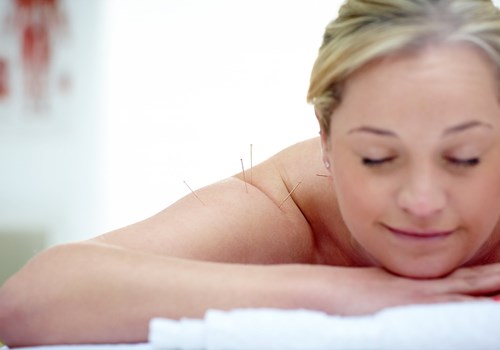
Utilising a Natural Approach to Ease your Menopause Symptoms
Have you considered using Acupuncture to help with your Menopause symptoms? Our Traditional Chinese Acupuncturist, Kuan-Sing Kao M.D.(Acu. & Chinese Medicine) explains how acupuncture can provide relief for the common symptoms of menopause. Through his special interest in treating menopause with traditional Chinese Acupuncture and herbs, he has over 20 years experience in helping women to ease their menopause symptoms. It is encouraging to know that the positive results patients report back are also supported by recent research.
Menopause for women starts when your ovaries stop releasing eggs, and there is a drop in blood oestrogen levels. This fall in hormone levels disrupts your menstrual cycle and can trigger other symptoms associated with menopause during this change in the body. Some women do not experience any noticeable symptoms however eight out of ten women do experience some. Most common are hot flushes and night sweats. Traditional Chinese Acupuncture works by helping to rebalance the body.
Symptoms of Menopause
What to expect with Treatment for Menopause with Tyack Health's Traditional Chinese Acupuncture
For patients with menopause, your first treatment is used to diagnose your individual yin/yang constitution and also test how you are likely to respond. This helps to establish the best treatment approach during future appointments for the best results.
You should notice improvements starting to occur after the second or third treatment as symptoms decrease, lifestyle adjustments are introduced and overall feeling of well-being increasing.
3-4 weekly treatments are recommended initially to recover your bodys balance to an optimum level. This can then be tapered off to a monthly maintenance to keep Qi flow within your body at maximum capacity.
Research supporting Traditional Chinese Acupuncture effectiveness for Menopause
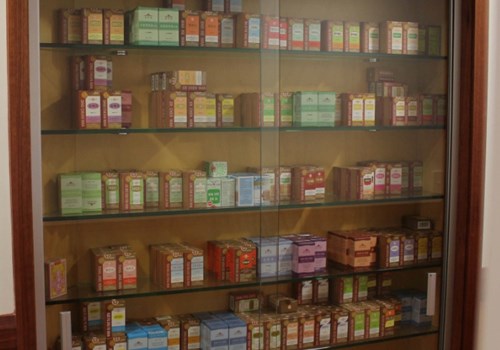
Acupuncture
Tiny acupuncture pins are used to help relieve pain and restore the body’s natural ability to function at its maximum potential.
Chinese Herbal Medicine
Chinese herbal medicine is also available, either as a supplement to Acupuncture or as a therapy on its own. Based upon the same diagnostic and theoretical understanding of disease, the herbal formulas enhance internal healing. The Chinese herbal formulas generally consist of roots, barks, fruit and foods and have been approved by the Australian Therapeutic Goods Association.
Natural Harmonisation
Natural harmonisation between Yin and Yang form the basis of the theory of Yin and Yang as a self-adjusting process. This refers to the natural regulating function of the Qis (energy) Yin –Yang in the human body, which enables the body to restore energy and the ability to maintain its best stability.
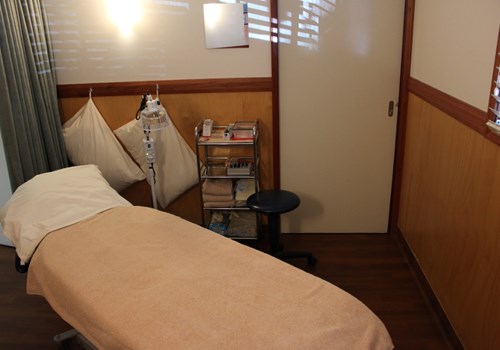
During consultation, a diagnostic pattern is determined from both the Practitioner’s observations and patient’s experience.
Areas of questioning may include:
Traditional Chinese Medicine diagnosis also includes observation of the tongue, pulse taking and palpation of body regions for trigger points in musculoskeletal conditions.
With some conditions, improvements may be experienced in as few as 1-2 visits. However chronic conditions usually require a standard course of 8-12 treatments.
Note: 45 minutes should be allowed for consultations.

Department Hours
Tuesday 1.30 pm – 7.00 pm
Wednesday 8.00 am – 11.00 am
Thursday 2.00 pm - 4.00 pm
Friday 1.00 pm – 7.00 pm
Saturday 8.00 am – 11.00 am
Consultation Fees
Initial $95
Follow-up $75
Follow-up Pension $70
Health Fund Rebates applicable
Cancellation Policy
We understand that life is unpredictable and you may not always be able to make your scheduled appointment. If you can’t make an appointment please contact our reception at least 24 hours prior to cancel or arrange for another time.
Missed appointments and appointments cancelled without 24 hours notice may be charged the full consultation fee.
Contact our Reception team on (07) 3249 5333
for further information.